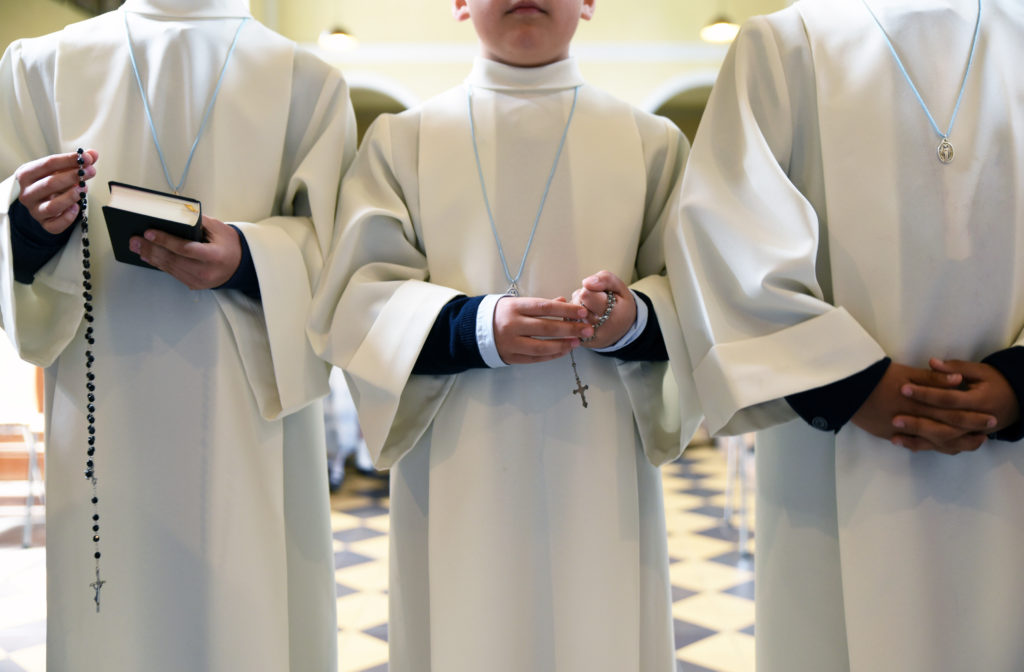 Many survivors of child sexual abuse struggle with a wide variety of psychological, social, emotional, and personal recovery issues as they mature into adults. Those who survived clergy-perpetrated sexual abuse (CPSA), however, may face additional spiritual challenges.
Many survivors of child sexual abuse struggle with a wide variety of psychological, social, emotional, and personal recovery issues as they mature into adults. Those who survived clergy-perpetrated sexual abuse (CPSA), however, may face additional spiritual challenges.
Long-Term Effects
According to RAINN (Rape, Abuse & Incest National Network), the nation’s largest anti-sexual violence organization, adults who were sexually abused as kids experience common ongoing problems, including:
• Depression
• Flashbacks
• Substance abuse
• Post-traumatic stress disorder (PTSD)
• Dissociation
• Eating disorders
• Sleep disorders
• Suicide
Beyond the physical and psychological trauma, adult survivors of CPSA often lose religious faith and spirituality.
Spiritual Injuries
Long-term effects of child sexual abuse by any perpetrator can include trauma, guilt, shame, blame, and negative feelings toward intimacy. Children may believe they should have prevented the abuse or feel they deserved it. As they mature, survivors may struggle with their sexuality, sexual identity, and healthy adult sexual interactions.
For adults who survived childhood CPSA, experiencing their sexuality in this way (sometimes for the first time) may cause conflict with the teachings of their church or faith traditions. They are even ostracized or rejected by their circles of faith. Coming forward as adults with charges against trusted and even beloved church leaders can damage survivors’ friendships, cause loss of community trust, resentment, harassment, family conflict, and many other negative consequences. This distance from community can harm an adult survivor’s mental health.
Survivors abused by trusted church members may struggle with issues related to their membership in the church or their faith itself, especially if church leaders or others in the church community were complicit in the abuse or coverup. Although studies are limited, religious believers seem to react to sexual trauma in a wide variety of ways. These reactions range from using faith as a coping strategy to survive and recover from the abuse, increasing their religious commitment, leaving their church community, or abandoning their belief system entirely.
Breaking the Code of Silence
For many households, clergy members in the local church community are as trusted and respected as members of the family. Predatory priests, pastors, and nuns use this trust to groom the children in their care and create opportunities for abuse, and then employ fear, guilt, and shame to ensure their victims remain silent.
Children who attempt to report CPSA are often belittled, ignored, and threatened. Their allegations are discredited and swept quickly under the rug, while the accused abusers—especially those with multiple claims of abuse against them — move abroad or are transferred to new communities of innocent, unwitting children. Many powerful, well-funded churches have protected members of their clergy in this way, using their wide-ranging resources and influence to discourage and prevent accusers from pursuing justice.
By the time many brave accusers come forward—many never do—and attempt to bring charges, the statutes of limitations for criminal actions have expired, making prosecution and imprisonment impossible. In many cases, the alleged perpetrators die before their actions come to light.
It may be possible, however, to bring a civil lawsuit to recover damages against surviving offenders or the church itself, particularly if there is evidence showing the church assisted in perpetuating or covering up the abuse. Some church dioceses have relief or compensation programs to compensate victims when litigation is not possible.
Recovering Damages in Clergy Abuse Cases
CPSA has reached epidemic proportions in the U.S. Although it is impossible to compensate survivors for the harm they suffer, numerous civil lawsuits against churches have attempted to hold abusers and abusive systems financially responsible. Survivors may be able to recover damages for medical expenses, lost income, pain, suffering, mental anguish, and emotional distress. In certain circumstances, Louisiana law may also allow the imposition of punitive damages, more significant monetary awards that “send a message” to punish and make an example of entities that aided and abetted the abuse (such as churches that covered up clerical abuse).
If you are a survivor of clergy abuse, by someone in the Archdiocese of New Orleans or elsewhere, an experienced attorney can help you understand what remedies may be available for your unique circumstances. For a confidential and compassionate discussion of your situation, please contact us today.









